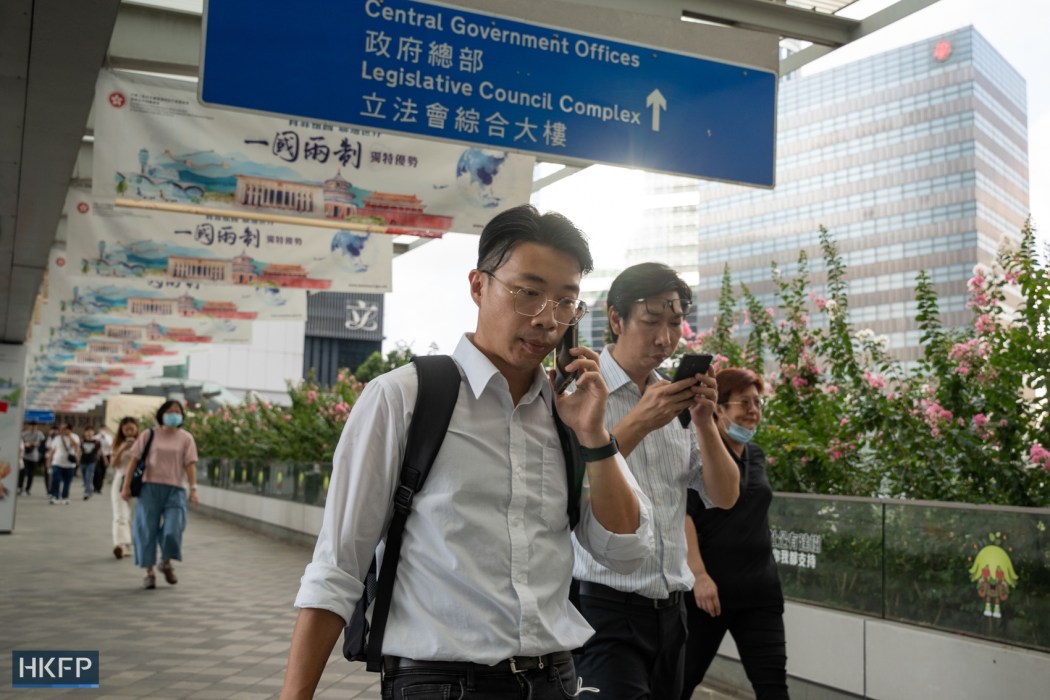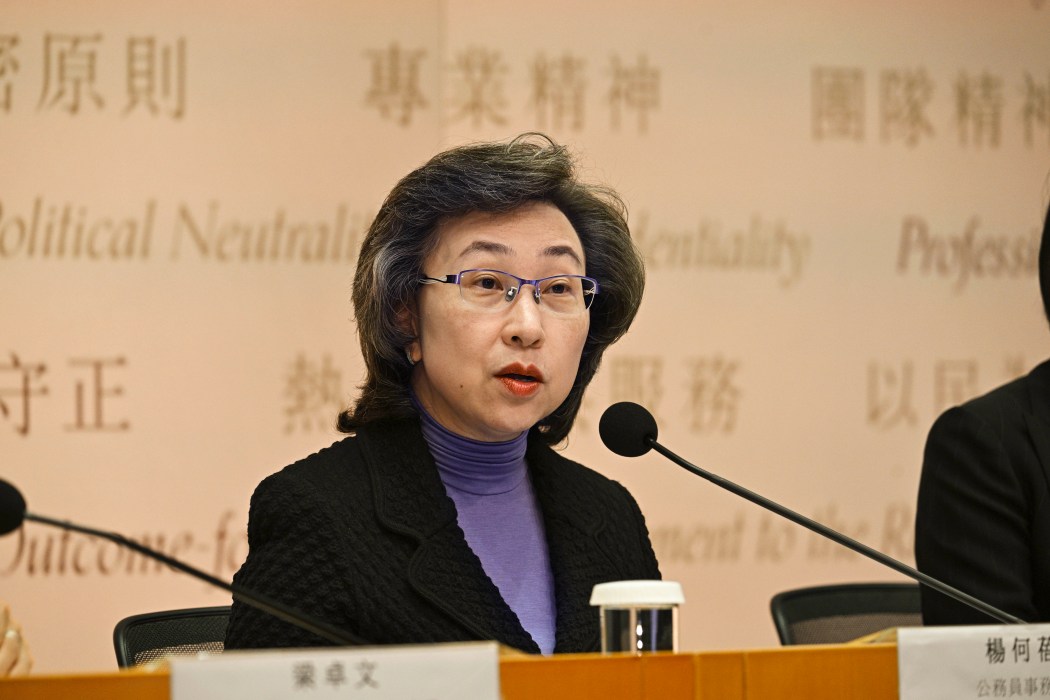Upholding national security will become a “core value” for Hong Kong’s 175,000 civil servants, a proposed new code of conduct states. Employees will also be barred from criticising government policies in their official capacity.

The Civil Service Bureau published a draft of its updated Civil Service Code on Wednesday. The 30-page document, twice as long as the current code, begins with stating that Hong Kong has entered “a new era in its governance” under the national security law and following an overhaul of the electoral system to ensure only “patriots” can lead the city.
Alongside values including passion for public service, integrity and professionalism, civil servants will also be required to uphold the constitutional order and national security.
“Civil servants should be loyal to the country, morally upright and
professionally competent. They should serve the community wholeheartedly, and strive for results and outcomes in performing their duties,” the code reads.
The Civil Service Code was issued in 2009 and had not been revised since. The Civil Service Bureau said on its website that the government saw a need to update the code as the “expectations and demands of the community towards civil servants have continuously grown.”
The public have been invited to submit their views on the draft by emailing or sending a letter to the Civil Service Bureau.

The code also states that civil servants “cannot criticise” government policies or “support opposing views of any other party” in their official capacity, either offline or online.
“How civil servants conduct themselves on the internet is no different from how they conduct themselves in the real world,” the code wrote, adding that their conduct could “simply go viral.”
When expressing views in their personal capacity, civil servants should ensure the opinions are not being “mistaken” as the government’s position.
Civil servants were among those who mobilised to demonstrate against the government during the protests and unrest in 2019. A rally they held in Central was attended by 40,000 people, organisers said.
A new civil servants’ union was also founded amid the protests. But the union disbanded in 2021 after the government introduced a loyalty pledge requiring employees to swear allegiance to the city and vow to uphold the Basic Law.
‘Political neutrality’
The government announced last year that it was planning to update the civil service code. Last October, Secretary for Civil Service Ingrid Yeung said “political neutrality” would be dropped from the code due to views that the term was unclear or gave rise to multiple interpretations.

Political neutrality, however, was still listed as a core value in Wednesday’s draft. But the section explaining political neutrality was double in length compared to the 2009 code, stating that civil servants should not hinder the government’s policymaking or “arouse… distrust or hostility” towards the government.
“In any event, civil servants should never, directly or indirectly, organise or participate in any activity that impedes policy implementation by the HKSAR Government,” the code states.
Yeung told a press conference on Wednesday that civil servants should be “vigilant against past misinterpretations of the meaning of ‘political neutrality.’
“Civil servants in any country must be loyal to their own country… it is not a newly imposed requirement,” she added.
There were 21 mentions of “One Country, Two Systems” and 40 mentions of “national security” in the draft. Neither of the phrases were found in the 2009 code.
Hong Kong employs around 175,000 civil servants working across government departments. The city’s civil service has seen an uptick in resignations in recent years amid an emigration wave and the introduction of the compulsory oath of allegiance to the government.
Beijing inserted national security legislation directly into Hong Kong’s mini-constitution in June 2020 following a year of pro-democracy protests and unrest. It criminalised subversion, secession, collusion with foreign forces and terrorist acts – broadly defined to include disruption to transport and other infrastructure. The move gave police sweeping new powers and led to hundreds of arrests amid new legal precedents, while dozens of civil society groups disappeared. The authorities say it restored stability and peace to the city, rejecting criticism from trade partners, the UN and NGOs.
Support HKFP | Policies & Ethics | Error/typo? | Contact Us | Newsletter | Transparency & Annual Report | Apps
Help safeguard press freedom & keep HKFP free for all readers by supporting our team

LATEST FROM HKFP
HKFP has an impartial stance, transparent funding, and balanced coverage guided by an Ethics Code and Corrections Policy.
Support press freedom & help us surpass 1,000 monthly Patrons: 100% independent, governed by an ethics code & not-for-profit.










